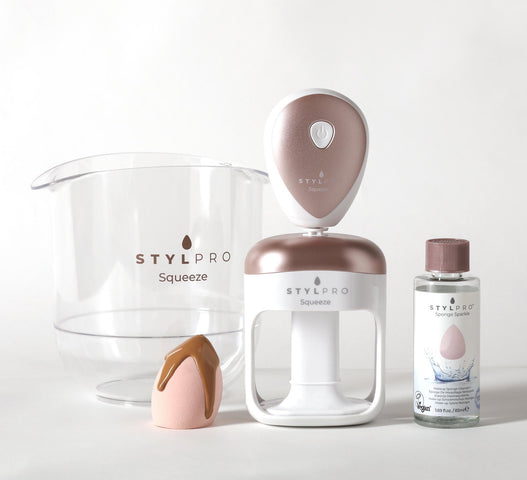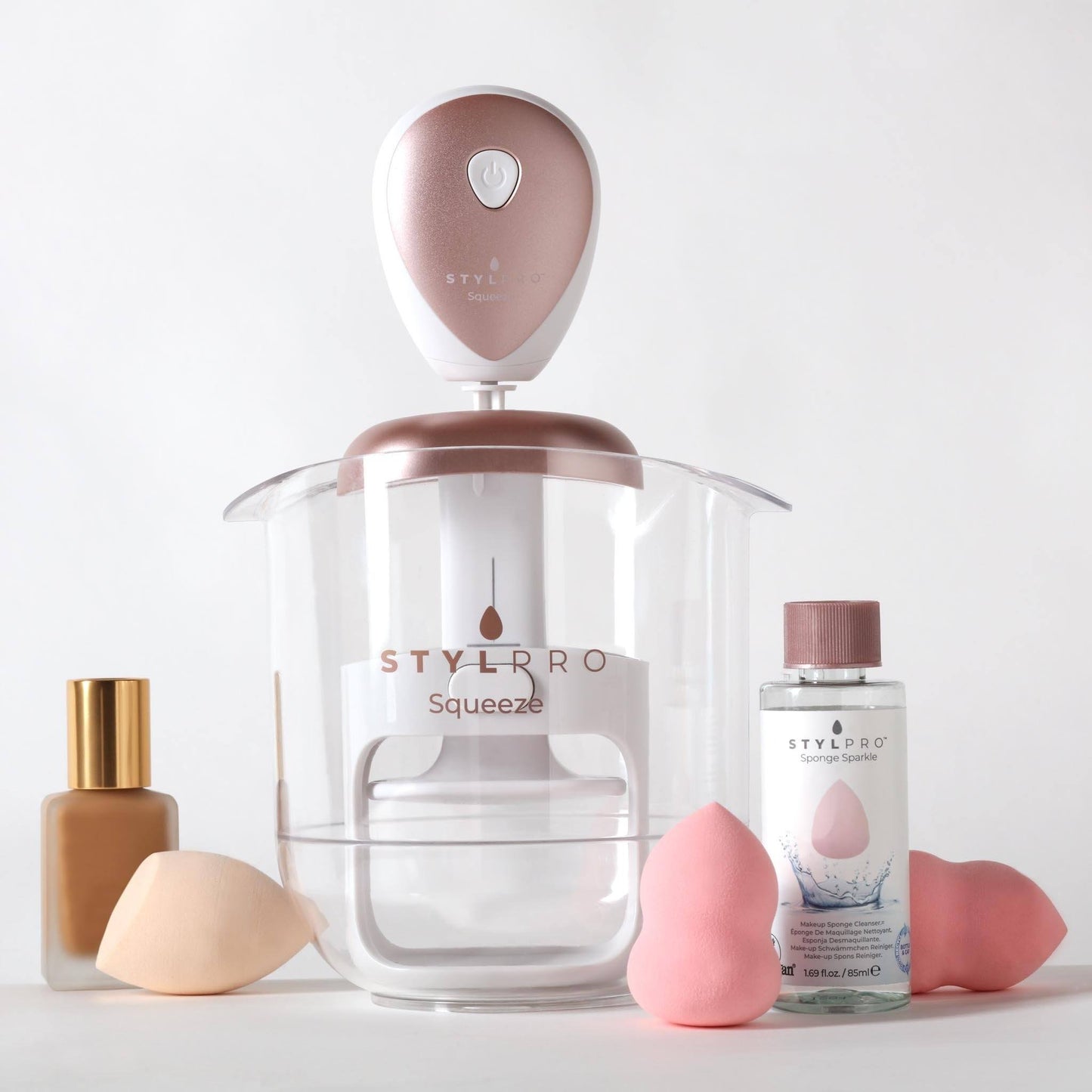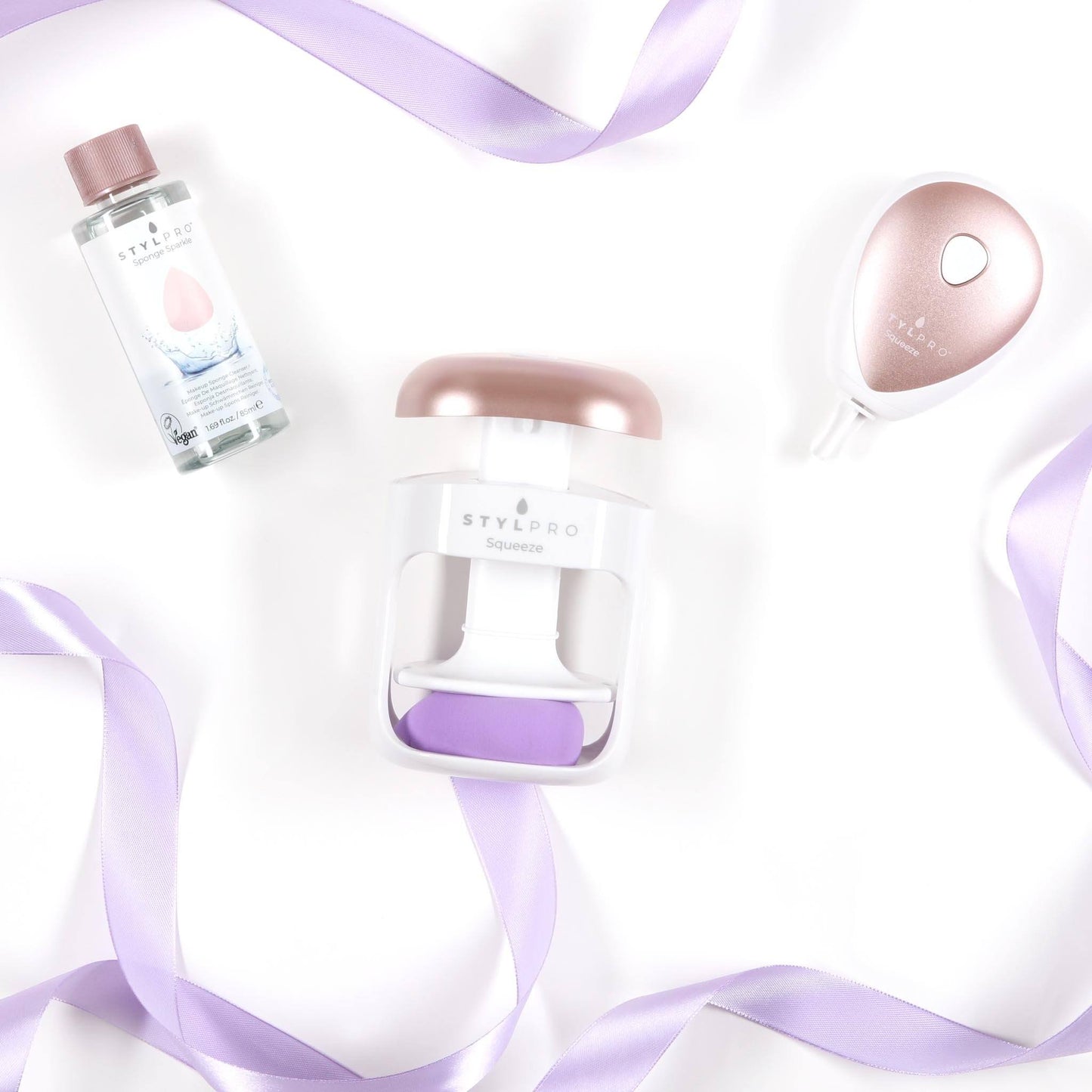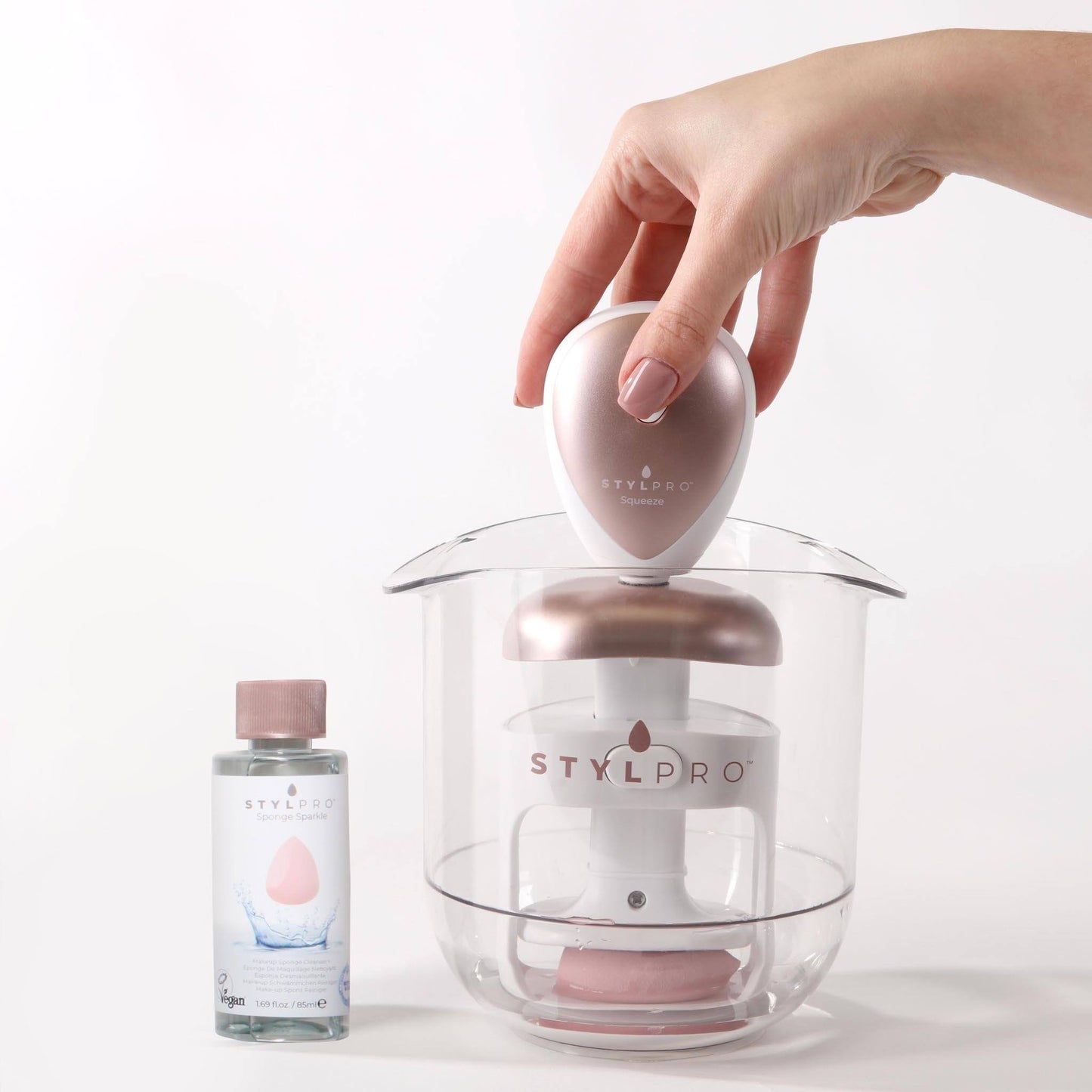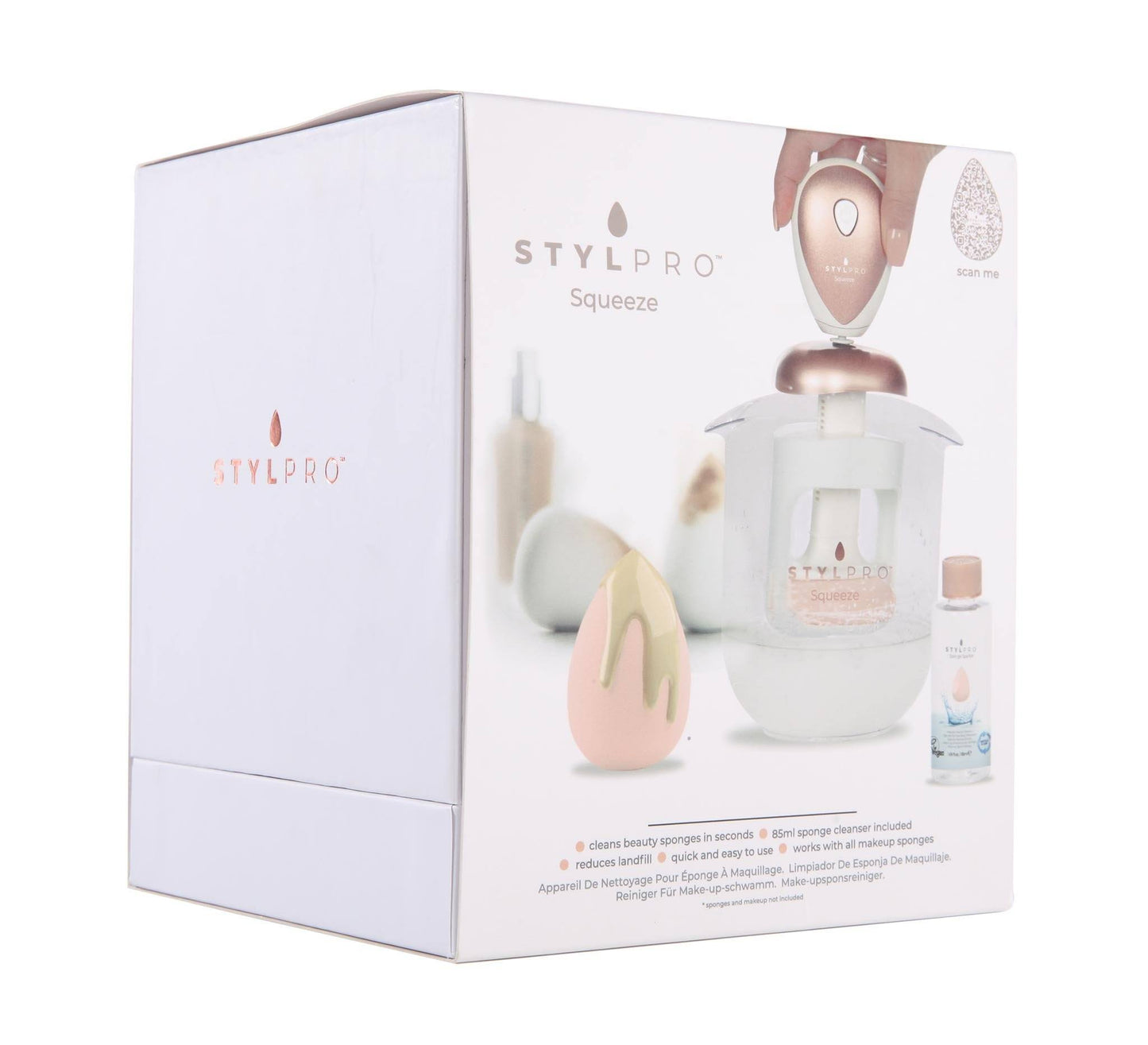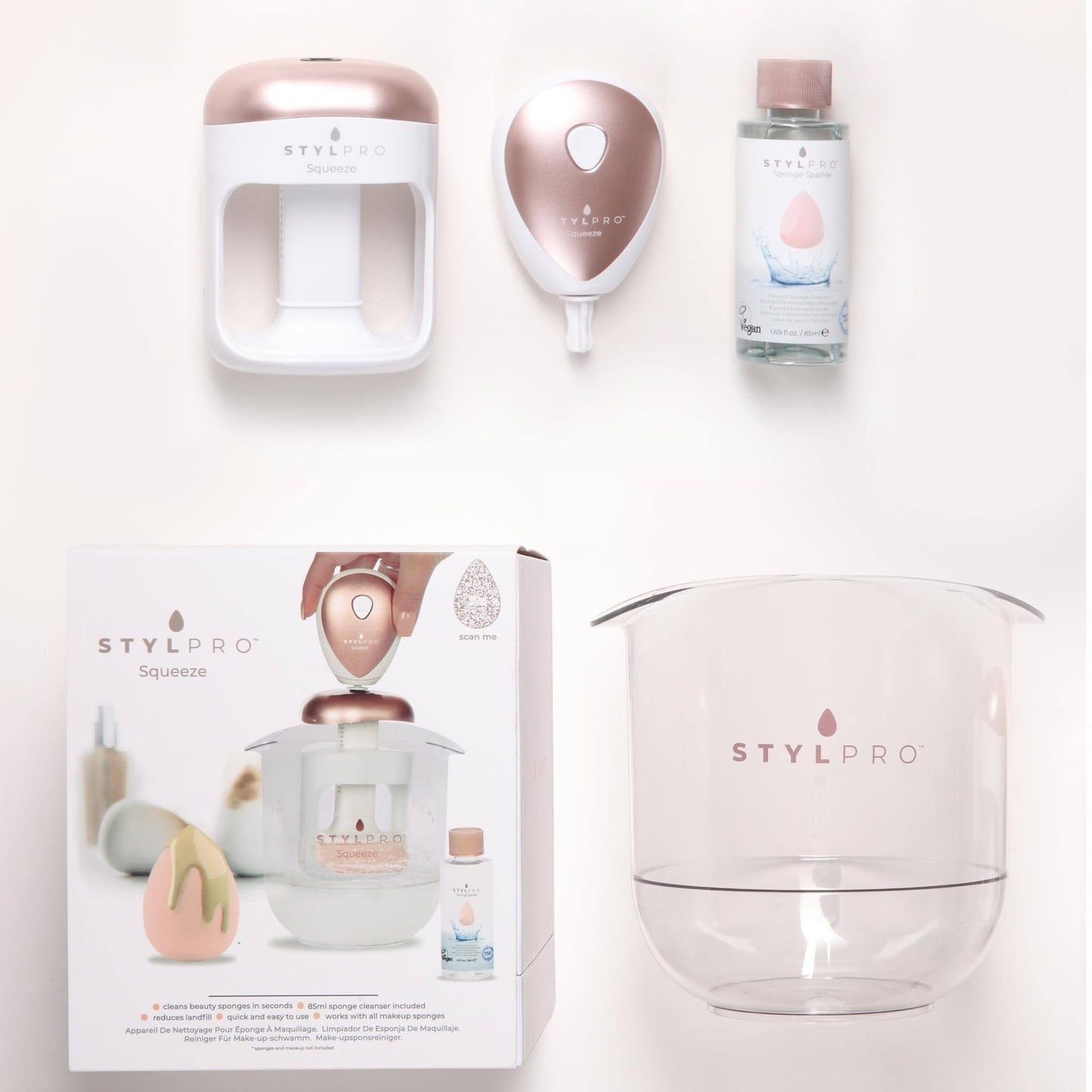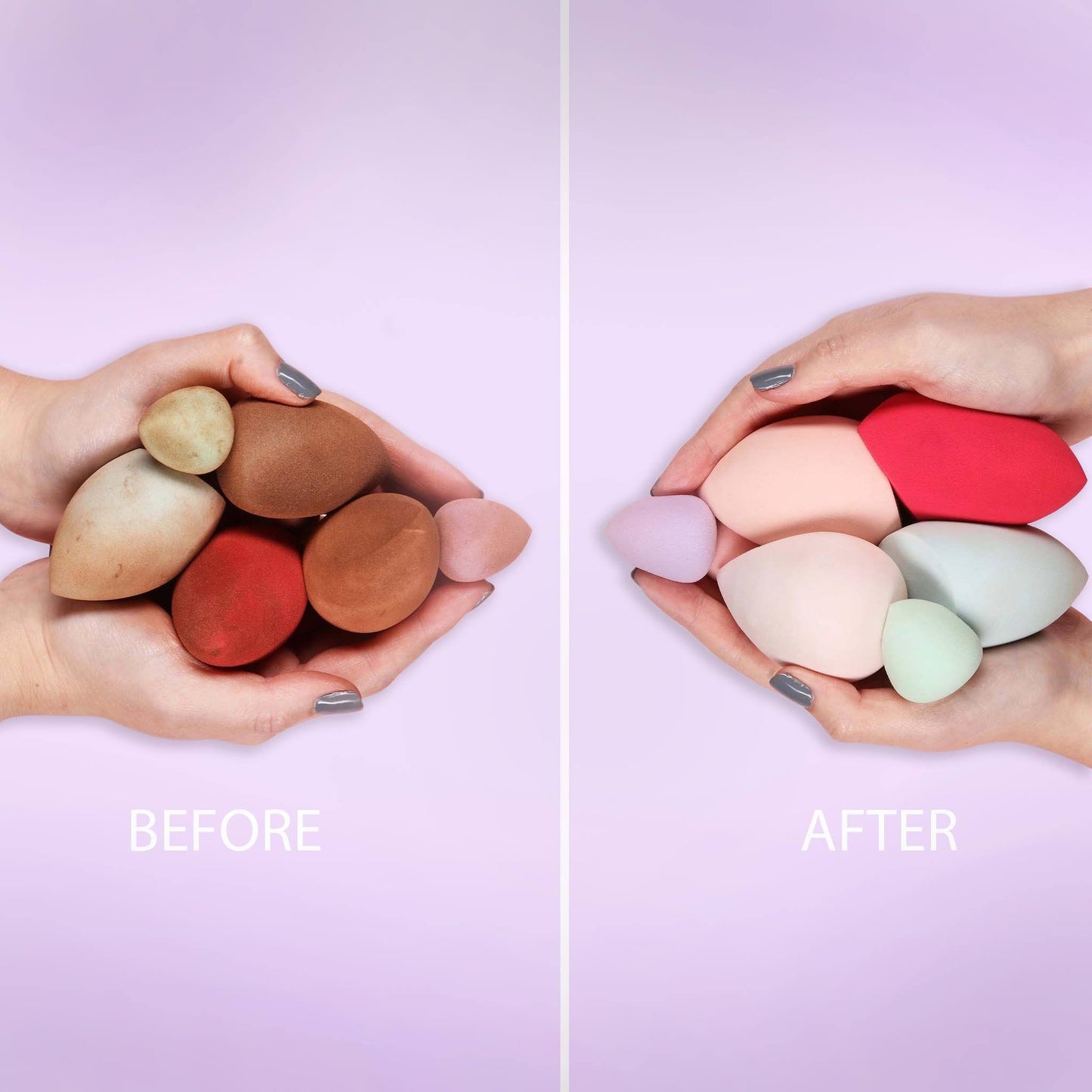Do you use a makeup sponge? Professionals and amateurs alike swear by the things for giving a smooth, even finish to makeup and, as a result, almost 12 million sponges were sold in the UK last year, so if you’ve got one in your makeup bag, you’re in good company. Just one thing… when was the last time you washed your makeup sponge?
We don’t want to gross you out, but one research paper looked at just how grubby makeup sponges were and found that the sponges that they looked at had on average, more than 1,000,000 bacteria colonies on each one! (To put that in context, when beauty products — such as foundations, and powders — are tested to check that they’re safe for sale, the maximum number allowed is 1,000, so those sponges are ONE THOUSAND times more bug-ridden than the legal limit!)
We decided to grub around for a bit more information on those dirty sponges. Here’s what we found out…
HOW dirty is your sponge?
You know that study we mentioned above — the one about sponges containing millions of bacteria? It was published in the Journal of Applied Microbiology in 2019 and one of the authors was Dr Amreen Bashir, a lecturer in biomedical sciences at Aston University. We tracked her down to find out more.
“We looked at a range of beauty products and tested them to see how contaminated they were,” she says. “And, in comparison to eyeliners, mascaras, lipsticks and lip gloss, the sponges we tested were significantly more contaminated. 93 per cent of the sponges we tested carried some form of organism.”
But what was even more worrying were the types of bacteria that they found on the sponges.
“When we analysed the bacteria, we found a lot of bacteria that would normally only be found in the gut,” says Dr Bashir. “And the only way bacteria from the gut can get outside the gut is via faeces.”
Her research showed that more than a quarter of the sponges carried “faecal contamination”. Bleuuurgh.
So how on earth does a sponge that you use on your face end up with — let’s call it what it is — poo on it?
“We think it’s about how they’re used,” says Dr Bashir. “Most people do their makeup in the bathroom and once the loo has been flushed, particles of what have been flushed can get into the environment. If your sponge sits on the counter top, or if you drop it on the floor — our research found that 64 per cent of sponges had been dropped on the floor — or if you don’t wash your hands between going to the loo and using it, it can easily come into contact with these types of bacteria.”
Does it REALLY matter?
Erm, YES. You probably already know that using grubby sponges, and face cloths that aren’t regularly washed could give you spots, but the sort of bacteria found in Dr Bashir’s research have serious implications for skin health — and more (even if you’ve somehow managed to get over the fact that you could be wiping the contents of the loo on your face!)
“Using sponges contaminated with these superbugs could potentially cause infections which can be pretty hard to treat,” says Dr Sonia Khorana (@dermgp on Instagram), an NHS GP and community dermatology doctor based in the West Midlands.
“They may not always cause serious infections but if there are cuts on your skin or if you’re using them around your mouth, or around your eyes – these bugs can get in very easily causing bacterial and fungal skin infections (such as impetigo), and eye infections (such as conjunctivitis).”
These types of infections are going to be unpleasant and unsightly for anyone, but for certain groups of people, it’s even more concerning.
“Immunocompromised individuals, or people with weak immune systems, are more prone to serious infections and complications from these infections,” says Dr Khorana.
Basically if you’ve got a healthy and functioning immune system, your body should be able to fight off these types of infections, but if you’re already ill, or rundown, a run-of-the-mill infection can actually cause real problems, such as sepsis, which is when your immune system overreacts to an infection and starts to damage your body's own tissues and organs. It can be life-threatening.
So should I BIN my manky old sponge?
NO! Yes, we know, all this sounds really horrible, but chucking your sponges isn’t the answer. Most of these sponges are made from plastics — not natural sponge, which mean they won’t degrade, they’ll just sit in landfill for hundreds and hundreds of years. Even if only HALF of the sponges that were bought in the UK 2019 were chucked out, they would fill almost 40 shipping containers and stretch from London to Paris.
Instead, you want to be washing — and crucially DRYING — your sponges regularly.
“Sponges have lots of layers that bacteria can hide in,” says Dr Bashir. “If you don’t dry them properly after washing them, you’ve got a moist environment that is the perfect environment for bacteria to grow in.”
How OFTEN do I need to wash my sponges?
Just because your sponge doesn’t look revolting, doesn’t mean it’s clean.
“We didn’t record this as part of our research but some of the sponges that were the most disgusting to look at were not always the most contaminated,” says Dr Bashir. Similarly, there didn’t seem to be a correlation between how old a sponge was and how contaminated it was — newer ones could be just as laden with bacteria as older ones.
Both Dr Khorana and Dr Bashir says cleaning your sponges on a weekly basis is “sensible”, but they point out that if you’ve dropped your sponge on the floor, or if you’re using it in the bathroom, you might want to think about washing it more frequently.
Dr Bashir also suggests that you might want to spritz it with alcohol in between uses to help keep bacteria at bay.
Frankly if you’re cleaning your sponges at all, you’re doing well — Dr Bashir’s research showed that only 6.4 per cent of the sponges that they analysed had ever been washed.
Hopefully what you’ve read here will inspire you to clean up your act!
Clean your makeup sponges in less than a minute with the brand new STYLPRO Squeeze Makeup Sponge Cleaner. Grab yours today here.



